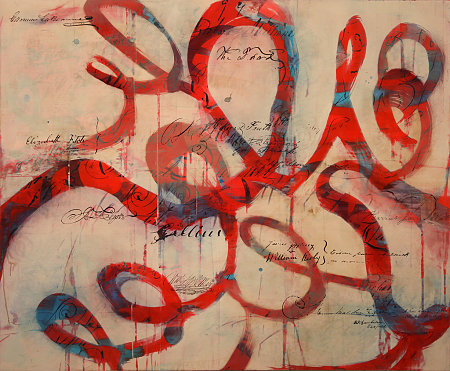
A Chance Conversation
Amos had planned on becoming an architect, like his father. He had heard that the best school was the University of Virginia, he had been admitted, and he was applying for a visa to go. But there had been a problem with his birth certificate, which had been lost as his family had fled Spain. Now, a martinet American Consulate bureaucrat kept him from getting the visa. And Amos ran into a high-school friend who said he should major in geology at the university in Caracas. “It’s so much fun,” the friend said, describing field trips, not-too-rigorous lab work, and meeting girls. Amos’s future was decided by a recalcitrant paper-pusher and an eager rock-jock. He would eventually become a U. S. citizen and rise to be Chief Geologist for Exxon (no problem about visas any more), as well as, after retiring, one of the stars of the geology department at the University of Texas. Had it not been for the two chances of the bureaucrat and the friend, Amos would never have majored in geology, would never have gone to Stanford’s graduate school, where he met his future wife, who was an undergraduate in a lab where he was the teaching assistant. He would never have been in the family; I would probably never have met him, let alone have heard this story from him.
Amos knew that one chance event—the bureaucrat whose passion for correct birth records kept Amos from attending the University of Virginia—did not establish the interlocking contingencies that put him where he was now. Every event is a result of a series of chances, and here there had been at least three: his diversion from architecture, his remaining in Caracas rather than going to the States as an undergraduate, and his move to geology.
*
I recently read Joseph Conrad’s Chance. Though he had been writing for almost twenty years and had published a dozen books, Conrad had had no real popular or critical success until Chance was published in 1913. Then he had both, and his other works received the recognition they deserved, as well.
Conrad puts on the title page an epigraph from Sir Thomas Browne: “Those that hold that all things are governed by Fortune had not erred, had they not persisted there.” The epigraph is oddly, ironically inconsistent with Conrad’s narrative, in which everything seems overdetermined by chance, if such an oxymoronic way of putting it may be permitted.
The unnamed narrator of the story and Conrad’s familiar character Marlow happen to meet a man named Charles Powell as they are cruising the mouth of the Thames, where Powell, now retired from the sea, likes to sail in his small cutter. Powell tells the two men the story of his first officer’s berth, which he got when a friend threw a chance suggestion to him to go see a man at the shipping office who just happened to be named Powell, as well, though he was no relation. While at the shipping office, Powell meets a captain, who just happens to have lost his second mate that very day to a carriage accident. Again by chance, Marlow happens to know of this captain and his ship, or, to be more precise, he has met the girl, Flora de Barral, whom the captain once saved from suicide.
The conclusion of the story is quick and melodramatic: During a “moonless night, thick with stars above, very dark on the water,” Powell, looking by chance through the cabin skylight, sees a man poisoning the captain’s drink. Later still, we learn that Flora now lives near the mouth of the Thames, where Powell likes to sail. Conrad seems here to be testing our willingness to believe by piling up coincidence, and indeed I am reminded of a remark E. M. Forster makes in Aspects of the Novel: that a novelist ought to put one big coincidence in his plot, because every reader knows that coincidence is a fact of life, but the author had better avoid any more than the one, because the reader also knows that coincidence is rare. In fact, Conrad is perfectly aware that he is piling it on, and his point seems to be that any meeting or parting, any new course of life, anything that happens to us, is a result of a series of chances. One of the many ways that chance works, one that’s so obvious that we have to notice it, is coincidence.
